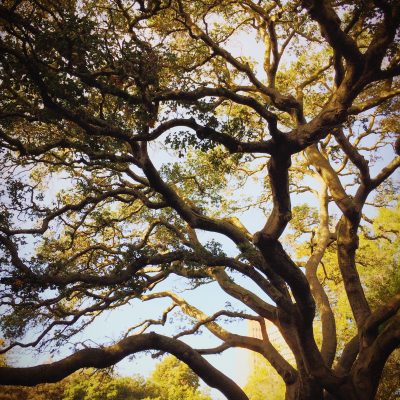In Mennonite circles, he is more likely to be known as the moderator of the Pacific Northwest Conference of the Mennonite Church USA or as a member of the Creation Care Council of Mennonite Creation Care Network. But on the job, Dave Hockman-Wert, Corvalis, Ore., is a scientist who finds meaning in seeking the truth about…fish.
Dave Hockman-Wert on the job in an Oregon stream.
In Mennonite circles, he is more likely to be known as the moderator of the Pacific Northwest Conference of the Mennonite Church USA or as a member of the Creation Care Council of Mennonite Creation Care Network. But on the job, Dave Hockman-Wert, Corvalis, Ore., is a scientist who finds meaning in seeking the truth about…fish.
Working for the federal government was not necessarily Dave Hockman-Wert’s dream job after graduate school, but, ten years ago, his roots sank into the Forest and Rangeland Ecosystem Science Center (FRESC) of Corvallis, Ore., and he has remained ever since.
“We're not setting the world on fire,” says Hockman-Wert. “But it's a good group to work with as we try to understand just a little bit more about this corner of the Earth where we live.”The FRESC is part of the Biological Resources division of the federal science agency known as the U.S. Geological Survey (USGS). FRESC focuses specifically on vegetation, wildlife and fish research in the western portion of the nation with special attention to threatened and endangered species such as sage grouse, northern spotted owls and oystercatchers, a family of wading birds.
The organization is one of twenty USGS science centers nationwide. Though his job title is “biologist,” Hockman-Wert’s daily endeavors include working on the geographic information systems (GIS), spatial analysis and data management for the aquatic ecology group.
“Federal science centers are important for the research and learning that occurs there,” says Hockman-Wert. “This research helps increase our knowledge about the natural world, which is the necessary precursor to creation care and stewardship.”
In the past, Hockman-Wert worked on a forest management project, using forest landscape modeling software to study the effects of various land management strategies. For the past seven years, his attention has turned to fish. Hockman-Wert and team members place tags in cutthroat trout in order to track population, distribution and growth over time. This study will help FRESC understand the impacts of industrial forestry on fish in headwater streams.
Another study involving fish is zooming in on the fish community in the Elwha River where two large dams have blocked access to miles of stream for several years. Plans are in place to remove the dams within the next two years. Hockman-Wert will track the changes that occur in brook trout and bull trout as this process takes place.
“Sometimes a particular research project may seem obscure and incremental,” says Hockman-Wert, “but the goal is always to learn more about this wonderful, mysterious world we live in and the creatures with whom we share it.” Though working with fish may be categorized as “obscure,” Hockman-Wert has become attached to them.
“I do enjoy learning about how these little fish live,” says Hockman-Wert. “We see a wide range of behaviors in the fish we study, and we do start to wonder whether fish are as hard to generalize about as humans are.” Another joy of his job is creating clear and helpful maps so field crews can enter and access data quickly and accurately.
There are challenges in research and in government work in general. One particular challenge for Hockman-Wert is that his focus has changed from that of human societies to animal life. In graduate school, Hockman-Wert studied human behavior and beliefs, observing how religious views may, or may not, influence the value of creation care. “I miss not being able to work full-time in these realms,” he says, “so I appreciate the opportunity to be involved with the Mennonite Creation Care Network, which does provide an outlet for these interests.”
Still, Hockman-Wert knows that his work with FRESC is extremely meaningful and that he is doing his part to care for the earth. This is one of many reasons why he is allowing his roots to sink even deeper in this field of study. “Science centers support land management agencies with good, up-to-date information (hopefully) and improved methods of monitoring ecosystems and species,” he says. “These agencies have the official responsibility to conserve, use, and protect federally-owned land for the good of the whole. Given the number of people in the world and the amount of resources we require for sustenance, the more we know about how to fill our needs with the least amount of impact on the rest of the world, the better.” – by Heidi Martin
